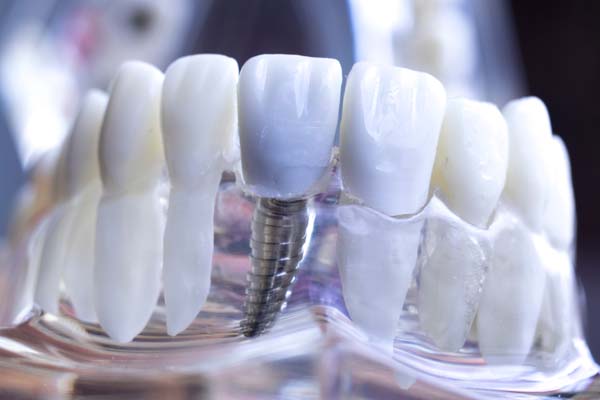Who Is a Candidate for Dental Implants?

Dental implants are one of the options that you get to explore if you are looking to replace missing teeth. These are metal rods or screws placed in the jaw to replace teeth roots, and implants are fitted with restorations like bridges, dentures, and crowns to replace teeth.
The ideal candidate for dental implants is healthy enough to recover from minor oral surgery. Their jawbone should also be thick enough to hold implants in place.
Determining your eligibility for dental implants
Many patients are thinking about getting dental implants. Let us take a look at a few of the things that a dentist goes over when evaluating a patient’s eligibility.
1. Missing teeth
Implants are used to replace missing teeth, so the ideal candidate for implants has one or more missing teeth. They can be used to replace a single missing tooth or combined with restorations like dentures to replace an entire dental arch. For patients who need to save on costs, dentists often recommend combining implants with restorations used to replace multiple teeth.
2. Being over 18
Implants are usually not recommended for children or teenagers who have lost one or more of their teeth. Their jawbones are still developing at this point, so they are better off exploring other options like dentures and bridges. The jawbone typically stops growing around the age of 20. Adults can get implants at any point in life, though, and dentists often recommend them for missing teeth because they preserve bone tissues in the jaw.
3. Decent overall and dental health
The ideal candidate for dental implants has decent health. They are healthy enough to recover from surgical procedures and are free of chronic conditions, like diabetes and heart disease, that can hinder the recovery process.
Having a health issue like diabetes does not automatically disqualify a patient from getting implants, however. They simply need to be evaluated individually to determine if it is safe to proceed with this process.
Patients are also screened for dental issues that can increase the risk of complications, like gum disease. Such issues are typically treated before proceeding with the installation of implants.
4. No dependency on drugs, alcohol, and tobacco
Drinking or using tobacco products regularly slows down the healing process, which increases the risk of complications developing after implants have been placed. Dentists typically talk to their patients about such habits during the evaluation period. Patients need to be willing to give up these habits during the recovery period to reduce their risk of complications.
5. Adequate jawbone thickness
To qualify for implants, patients need to have enough bone tissues in their jaw to hold implants in place. Not having the needed bone density is not an automatic dealbreaker, though, because bone grafts can be used to thicken a patient's jawbone.
However, bone grafts do increase the length of the process. The patient needs to be healed from the graft before being cleared for implants, which can take up to three months.
Explore dental implants
Do you need to replace one or more missing teeth? Call or visit our Feeding Hills clinic to set up an appointment with our dentist to explore treatment options.
Request an appointment here: https://www.agawamdentalarts.com or call Agawam Dental Arts at (413) 362-7815 for an appointment in our Feeding Hills office.
Check out what others are saying about our dental services on Yelp: Dental Implants in Feeding Hills, MA.
Recent Posts
If you’ve ever broken a tooth, then you’ve likely had a dental crown put on. What you may not know is what exactly a crown is and how they are used by the dentist. The crown itself is a very versatile dental application that works to restore the shape of a tooth as well as…
Dental implants are titanium posts placed into the jawbone to serve as the roots of replacement teeth. They are often the most highly recommended teeth replacement solution due to the unique benefits that they provide over alternative solutions, such as removable dentures and fixed bridges.The three primary options that patients have after they lose one…
Bone regeneration is a procedure that involves replacing lost bone inside of the jaw to ensure a secure fit for dental implants. Bone regeneration is often an essential step of the preparation process for dental implants, and learning more about it can help you decide if seeking treatment is right for you.Bone regeneration and dental…
Implant dentures are a popular tooth replacement option that many dentists are recommending. They come with an array of benefits that many other replacement options do not have. When undergoing a consultation appointment regarding implant dentures, having questions ready will be helpful when preparing for the appointment and the possible tooth replacement process. Outlined below are…


